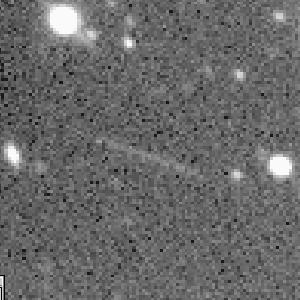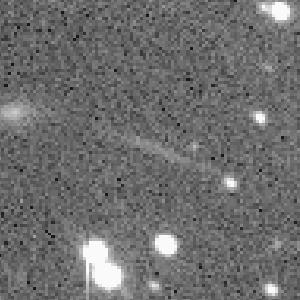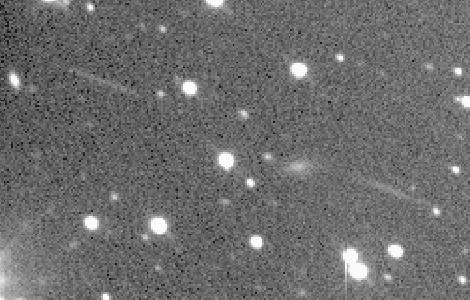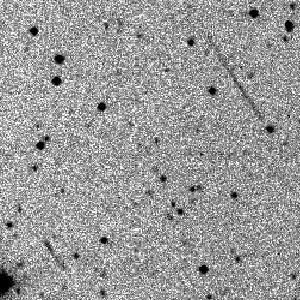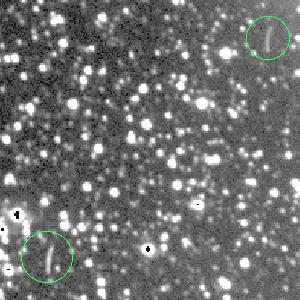Occasionally satellites will "tumble" and the variance in the reflectiveness of its surfaces will cause a "flashing" effect. When the highly reflective surfaces point toward the sun, the satellite is visible to our CCD but as the satellite 'tumbles' and the less reflective surfaces point toward the sun object 'disappears' (due inadequate reflection of sunlight.) This "fainter-brighter-fainter" behavior causes the image to have short trails that look like plausible FMOs...but they are all on a line (and they all are the same length!) Has anyone seen "Iridium flashes"? It is the same phenomenon.
OBJECT: Possible FMO!
Wow! A second FMO in the same image! This FMO appears in the same image as the object shown on the left.
OBJECT: Two FMOs
CHARACTERISTICS:
While these two FMOs briefly appear on the same image, we know they are completely unrelated. As seen from their respective trail lengths they are moving at very different speeds, hence they are at two very different distances from the Earth. Regardless, images like this are very exciting - it has only happened twice in SPACEWATCH®'s history!
(Note: The trails appear black due to a reversal of the image scale - the low signal sky is white and the stars are black.)
OBJECT: Two FMOs
CHARACTERISTICS:
Note that these two trails (in opposite corners of the image) are the same length and traveling in the same direction. While the identical lengths should make the reviewer suspicious, note that they are not on the same line - hence they cannot be two images of the same object.
That said, we now know these trails actually are related, they are two pieces of a spacecraft (CONTOUR) that separated during a rocket manuveur while in a heliocentric orbit. One piece is moving very slightly slower and at a minutely different angle, thus the two pieces are slowly diverging.
Objects with similar trail lengths and moving in the same general direction, but NOT on the same path, are VERY interesting. The proximity and similar trail lengths should be reported as an additional note.


